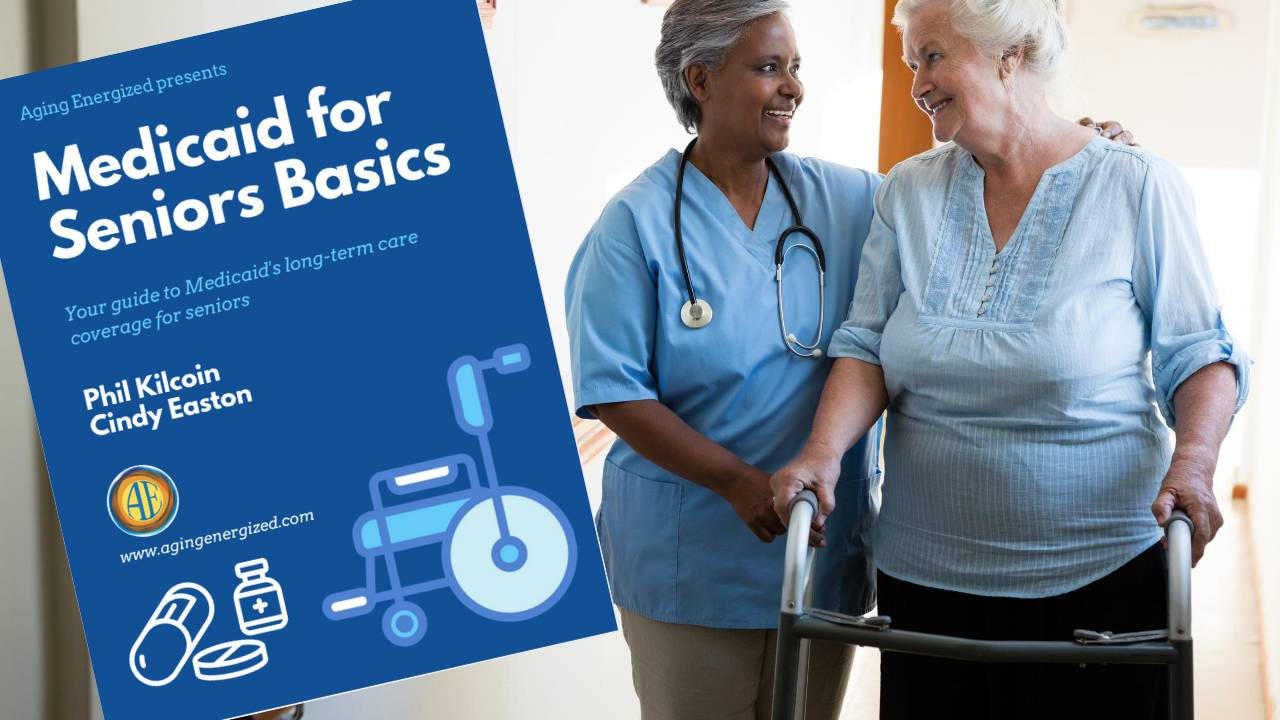Aging Energized Articles
Read about topics to help you age well, enjoy your retirement years, and navigate the intricacies of Medicare and Social Security.
Will You Age in Place or at a Multi-Functional Living Location?

If you are healthy and fully functional on your own, now is the time to give this serious consideration.
The best answer may be to age in place as long as feasible and then move into a multi-functional living location. The problem is you and your adult children may not agree on when is the best or most appropriate time to make this type of move, if ever. Your best defense is a good offense. Get out in front of this and plan for what is best for you and/or your spouse now.
First, let’s define our two terms. “Age in place” means you will continue to live in your home and when the time comes that you need help with activities of daily living, you will have someone come to your home to help you and provide these services.
To move into a “multi-functional living location” means you will live in an apartment at a location where three stages of care are provided. The first stage is independent living where the primary “care” provided is daily meals and weekly house cleaning. At this same l...
Do You Have a Plan for Long-Term Care?

This topic is important because Medicare doesn't cover long-term care. Never has, never will.
Medicare Isn't the Answer
Medicare only covers medical issues, not what is called "Activities of daily living." As we decline and need extra help and care, Medicare isn't the answer.
What is the answer? Fundamentally there are three answers
- Long term care insurance.
- Pay your own way with existing financial resources from yourself or other family members.
- Medicaid for Seniors.
As we decline, the help we need may start off simply as needing help with food preparation, getting dressed each day, bathing, mobility (help getting in and out of a car). As time goes on, our needs often increase beyond the capability or capacity of our loved ones who are happy to help but have lives of their own to live, or they may be many miles away and cannot help everyday or on a regular basis.
This is where we come back to the central question: Do you have a plan for long term care? Have you specificall...
New Book--Medicaid for Seniors Basics

It's launch time again! We're super excited to release our newest book, Medicaid for Seniors Basics. It explains how the Medicaid for seniors program for long-term care can help those who have a low in come and have exhausted their assets can pay for the long-term care they need.
It explains the income and asset requirements, how the non-applying spouse is affected, and important concepts such as:
- 5-year look back
- Spend down
This book can be your lifeline to paying for essential care for yourself or a loved one.
You can find this book in the Aging Energized shop.
Medicare vs. Medicaid - Do You Know the Difference?

Medicare and Medicaid sound similar, but they're actually very different. Each provides different types of assistance to help with healthcare. Both are government programs, but they are very different. Medicare is provided by the federal government (the Social Security Administration). Medicaid is provided by state governments and varies from state to state. Medicare is available to anyone age 65 and older who has worked at least 10 years in the U.S., and at any age to people with disabilities. Medicaid is only available to people with limited income and assets.
Let's look at the other differences.
Medicare
Medicare is federal healthcare insurance for people 65 years of age or older. You can get Medicare under age 65 if you have a qualifying disability, including end stage renal disease (ESRD) or ALS. Medicare covers inpatient or hospital care (Part A), outpatient services (Part B), and prescription drugs (Part D). Other plans, such as Medicare Advantage (Part C) and Medigap are als...
Medicaid for Seniors Basics - New Course!

Aging Energized is very excited to announce the launch of our newest course, "Medicaid for Seniors Basics."
This course helps you understand what you need to know about Medicaid for Seniors, a Medicaid program specifically for seniors who have exhausted their financial resources or long-term insurance benefits and need help paying for long-term care or services that are considered to be activities of daily living. This is the type of care typically found in assisted living facilities or nursing homes.
This course may be helpful to you if you are dealing with these issues for yourself, or for a loved one such as a parent.
You may not realize that there are things you can and should do long before you need Medicaid so you'll be better prepared to sign up and be accepted by Medicaid. For example, there are income and asset limitations. Your assets must be under a certain amount, and only certain things count toward your assets. and your income must be below a certain amount. This bring...

